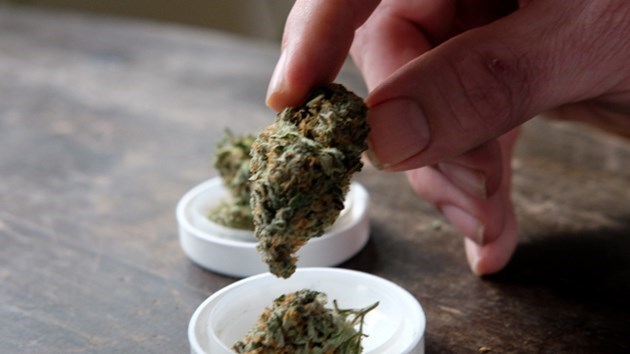As Canada heads toward marijuana legalization sometime this year, health groups are working to educate the public on the dangers of pot.
This week, the Canadian Consortium for Early Intervention in Psychosis issued a position on legalization, calling for 21 to be the legal age before anyone can buy marijuana. It also wants less potent weed sold to anyone under age 25, out of concern for the effect pot has on still developing brains.
“Adults under 25 years of age in Canada have the highest 12-month prevalence rate of cannabis use of all developed countries,” the group said in its statement. “Regular cannabis use in youth and young adults can affect aspects of cognition including attention, memory, processing speed, visuospatial functioning and overall IQ. Worse performance is related to earlier adolescent onset of use. Abstinence may improve some, but not all, of these domains.
“Early and regular cannabis use increases the risk of developing a primary psychotic illness in those individuals who are vulnerable.”
And for people with early phase psychosis, marijuana use makes the symptoms worse, especially those who use pot with higher Tetrahydrocannabinol (THC) levels, the compound that produces the 'high' users feel.
Dr. Ariella Zbar, associate medical officer of health with the Sudbury and District Health Unit, said the negative effects of marijuana for teens is becoming clearer.
"We know that brain development is not really complete until age 25, so that's why it's part of this report,”Zbar said. "Because of its linkage to early psychosis and a number of other side-effects, such as decreased motivation and how that impacts education and future occupations.
"Motivation, future occupational choices, completion of education, these are things that are evolving over time. When you experience psychosis, without effective treatment it can really limit your ability to function not only at school and at work, but in life in general."
Across Canada, about 13 per cent of residents use marijuana, Zbar said, and Ontario has a similar rate.
"And (the World Health Organization) surveyed about 40 countries and Canada rated the second-highest among all those countries, just a few percentage points behind France in terms of marijuana use," she said.
The health unit hopes to educate people – especially teens – on the potential harm marijuana can do, since it's often viewed as a relatively benign drug.
"Youth tend to be unclear on the harmful effects of cannabis," Zbar said. "That can put them at an increased risk, if they see it as less harmful as, say, alcohol or tobacco or other drugs.
"What we know from the research is we see an increase in early psychosis, especially the younger you start taking marijuana, and especially for those predisposed or at risk for those particular disorders."
While pot use is usually associated with getting the munchies, and is even used medically to treat nausea, Zbar said in rare cases, it can have a profound effect in the opposite direction.
"In Colorado, where marijuana has been legalized, they've also seen an increase in what's called cannabis hyperemesis syndrome, where not just young adults, but anyone else who uses a lot of marijuana has been presenting with a lot of vomiting," she said. "It's not pleasant and it has increased in Colorado since legalization."
Whatever the legal age is for buying marijuana, Zbar said having the same age limits across Canada is important. Studies have shown, for example, that the uneven drinking age – it's 18 in Quebec – undermines enforcement.
"If it's 18, 19, 21, varying across the provinces, it really does limit the effectiveness of those age limits," she said. "It can be very confusing, and we know from our research in alcohol and tobacco, when you have that variation (in legal ages) it makes the policy very unclear and limits the effectiveness from an enforcement perspective."
To prepare, the health unit is looking for ways to get the message out to parents and young people about the potential harm that smoking pot can cause.
That information will likely change as legalization becomes a reality and they learn more about the drug and its effects.
"We are drawing from both alcohol and tobacco enforcement and education literature, because it spans both topics in terms of the effects it can have," Zbar said. "But the way we talk about marijuana and reducing the risks will evolve over time."
